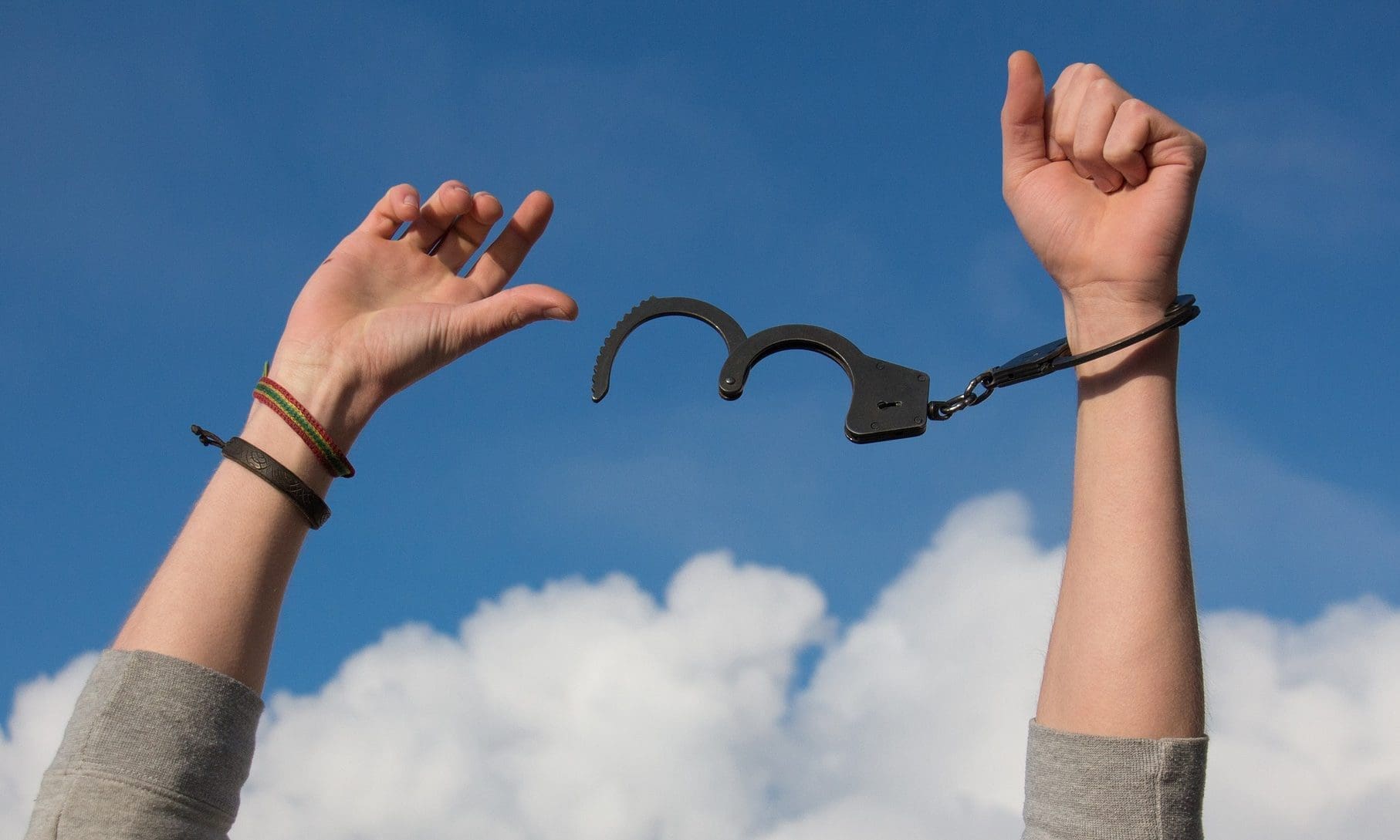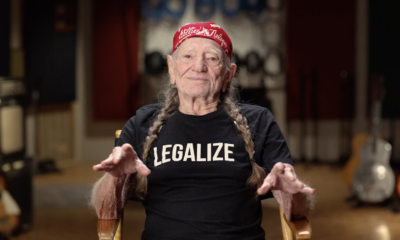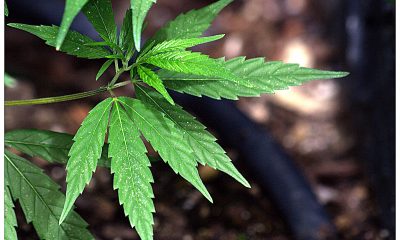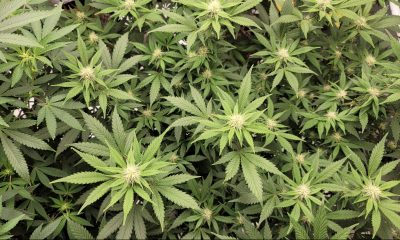Politics
Washington Lawmakers Hear Drug Decrim Bill After Supreme Court Strikes Down Prohibition

With Washington State lawmakers weighing their options after a court ruling that struck down the state’s law criminalizing drug possession, legislation favored by reform-minded lawmakers received its first committee hearing on Monday.
Senate Bill 5476 is one of at least nine measures introduced in response to the state Supreme Court’s February decision, State v. Blake, and is widely seen as among the more likely of the bills to make it across the finish line before the legislative session ends on April 25. If passed, it would represent a shift away from the punitive drug war and toward a public health approach to substance use.
Possession of small, “personal use” amounts of controlled substances by adults 21 and older would remain decriminalized under the bill. Adults found with anything under those amounts—adopted from neighboring Oregon’s voter-passed decriminalization law—could be referred to evaluation and treatment but would see no criminal or civil penalties. Opening or using controlled substances in public would be subject to a $125 civil fine, which would help defray administrative costs resulting from the state’s abrupt decriminalization.
The bill would reinstate criminal charges, however, for activity outside the carveout for simple possession. Adults with more than the personal use amounts would be subject to a Class C felony, while possession by anyone under 21 would be a gross misdemeanor.
The Senate Ways and Means Committee took nearly an hour of initial testimony on Monday but, as planned, did not vote on the bill. Further action has not yet been scheduled.
Sen. Manka Dhingra (D), the proposal’s sponsor, said at the hearing that both the timing and the outcome of the Blake decision were unexpected. Within hours after the ruling, police departments across the state announced they would immediately halt arrests for drug possession. Prosecutors, too, began preparing to drop ongoing cases and file orders vacating past convictions. Courts and the state Department of Corrections are now scrambling to address the consequences.
“There were two questions” in the wake of the decision, Dhingra told the committee. “One was, ‘Does the state need to act?’ Overwhelmingly the response was yes. And the second one was, ‘What should the response be?’”
There’s less of a consensus on the second question so far. While more progressive lawmakers see the ruling as an opportunity to fundamentally rethink the state’s approach to substance use disorders and mental health, more centrist and conservative members have balked at the idea of removing all penalties for drugs, which they say is tantamount to legalization.
A number of competing proposals have also been introduced. Some, including SB 5468, SB 5475 and HB 1560, would more or less return the state’s possession law to how it was before the Blake decision, adding a provision that would require that a defendant “knowingly” possess the drug. A similar bill, SB 5471, would also add a $3,000 civil fine for anyone “unknowingly” in possession. Another, HB 1561, would reinstate felony charges and increase sentences for simple possession.
Some Republican-backed bills offer alternative approaches to the consequences of the court decision. HB 1562 would allow local governments to recriminalize drug possession, while HB 1558 would fund law enforcement training programs around substance treatment disorder. HB 1559 would allow police officers to detain minors for substance possession and refer them to treatment.
—
Marijuana Moment is already tracking more than 900 cannabis, psychedelics and drug policy bills in state legislatures and Congress this year. Patreon supporters pledging at least $25/month get access to our interactive maps, charts and hearing calendar so they don’t miss any developments.
![]()
Learn more about our marijuana bill tracker and become a supporter on Patreon to get access.
—
Dhingra described SB 5476 to Marijuana Moment as a compromise bill meant “to get the votes needed.” She said she was aware of criticisms by some reform advocates, such as the criminal charge for minors in possession of controlled substances, but noted that among her colleagues, “I think a lot of people draw the line on children.”
She said that the felony-level charge for possession of more than the personal use amount would ensure that control of possession cases is handled by district attorneys rather than less-experienced criminal prosecutors at the municipal level. The Class C felony designation, she added, would make the charge among the lowest priority for prosecutors.
Washington voters, meanwhile, are generally supportive of decriminalization, according to a new statewide poll commissioned by advocates. Fifty-nine percent of those surveyed said lawmakers should use the Blake decision to “reconsider and replace past drug possession laws with more effective addiction and treatment alternatives,” while only 35 percent favored making a technical change to return to the past system.
Nearly 3 in 4 voters (73 percent) said the state’s approach to problematic drug use has been a failure. Just 9 percent called it a success, while 18 percent were unsure.
While members of the Ways and Means Committee made few comments about the bill during Monday’s hearing, those who spoke at public comment included prosecutors and public defenders, local government advocates, advocacy groups and individuals in treatment for substance use disorder, among others.
Russell Brown, executive director of the Washington Association of Prosecuting Attorneys (WAPA), told the panel that the group supports many of the bill’s provisions, including penalties for juvenile use and establishing a felony for adult possession of more than personal use amounts.
But prosecutors remain divided on the issue of decriminalization, he said. “There’s certainly a split within WAPA on the ultimate question of whether personal use or whether we use some other tool, like a mandatory diversion to treatment or some graduated penalty.”
Andy Miller, Benton County prosecutor, said he’s among those who “is concerned about decriminalization of personal use,” arguing that it “would remove an incentive for drug courts and drug diversion programs.”
Greg Banks, Island County prosecuting attorney, was less skeptical. “I’m one of a number of prosecutors who are not opposed to decriminalizing personal use amounts for adults as part of a comprehensive strategy,” he said.
On the criminal defense side, Willy Jefferson Jr., of the Washington Association for Criminal Defense Lawyers and the Washington Defender Association, told the panel the bill itself is unnecessary. He argued the Blake decision did not get rid of other elements of the state’s drug laws—only possession.
“[A drug] has to be in something—that’s drug paraphernalia,” which remains illegal, Jefferson noted. “You can’t give it away—that’s a delivery. And you can’t possess it with intention to deliver—that’s a felony. And so these laws will hurt people. We don’t need them.”
Others, however, such as Lisa Daugaard, a founding staff attorney at the Public Defender Association, warned that if the state doesn’t pass SB 5476 or a similar state-level law regarding possession, “most local jurisdictions will pass their own ordinances criminalizing drug possession, and there is compelling legal analysis that they legally can do so.”
Many drug reform advocates were broadly supportive of the bill but said it needed to provide more support to people in need, such as by investing in expanded drug treatment outreach and recovery services.
“The war on drugs has particularly hurt Black, brown and Indigenous communities,” said Sybill Hyppolite, legislative director for the Washington State Labor Council. “This bill provides a minimum statewide standard of protection from this punishment. This is an important step, and also we know more is needed to undo the war on drugs, to build a true system of care.”
Earlier this session, lawmakers considered a separate bill, HB 1499, that would have decriminalized simple possession and reinvested in broader treatment and recovery services. That measure also would have established an expert panel to set personal use amounts. It passed a House committee but failed to meet a mid-session legislative deadline.
Rep. Lauren Davis (D), the lead sponsor of that bill, said the Blake decision has rightly called into question the criminalization of drug use, “but that has taken all the air out of the room about how do we actually serve these individuals.”
“If you fail to treat the underlying substance use disorder, there will be no reduction in recidivism,” she told Marijuana Moment in an interview. “How do we create a person-centered paradigm of care, and, importantly, how do we fund it?”
“Frankly, the only way that you are ever going to get the more progressive caucus, particularly of the House, to ever vote to recriminalize,” she added, “is if you’re going to create the architecture for and truly fund that diversion mechanism.”
In a letter to the Senate Ways and Means Panel, the advocacy group Treatment First WA, which helped organize and introduce HB 1499, urged lawmakers to pass SB 5467.
“This moment calls for a pragmatic, statewide approach to next steps,” the group wrote. “What makes this moment challenging is not that we lack an understanding of the damage done by past policy, or evidence to support better policy, but that we are breaking new ground, and we need action in a very short window of time.”
Read the new Washington drug decriminalization poll below:
Cops Can’t Arrest You For Smoking Marijuana On Sidewalks, NYPD Says In Post-Legalization Memo
















